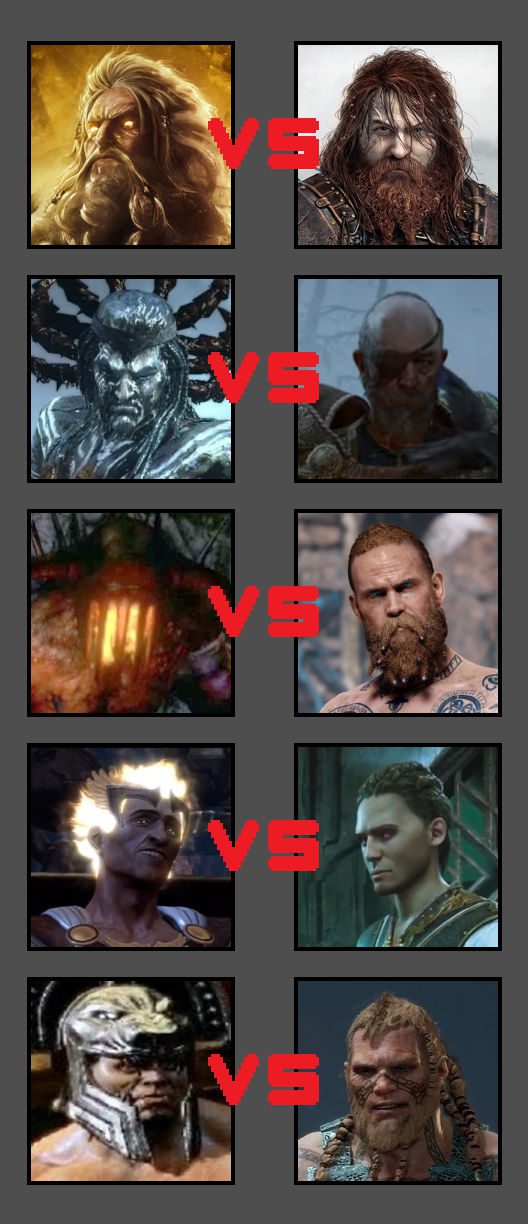The Norse and Greek cultures have significant impacts on the world’s mythology. The gods of these cultures have distinct characteristics that set them apart from each other. The Norse gods are known for their power and strength, while the Greek gods are known for their beauty and intelligence. The article explores the personalities, values, and beliefs of these gods and the impact they had on their respective cultures. Despite the differences, both cultures’ gods have influenced their people’s beliefs and daily behavior, and they continue to have an impact today.
Unleashing the Power: Norse Gods Vs Greek Gods
Introduction
The world is full of different cultures and traditions that have their unique beliefs, values, and stories. Two of these cultures, the Norse and the Greek, have a significant impact on the world’s mythology. Both of these cultures have gods that have inspired various books, movies, and TV shows. The gods of these cultures have distinct characteristics that set them apart from one another. In this article, we will discuss and explore the differences between Norse gods and Greek gods.
Norse Gods
The Norse gods are the gods of the Vikings. The Vikings, also known as Norsemen, were seafarers, traders, and warriors who lived in the Scandinavian countries during the Viking Age (793 AD-1066 AD). The gods of the Norse mythology are known for their power, strength, and bravery.
The most well-known of the Norse gods is Thor, the god of thunder, lightning, and storms. He is depicted as a muscular man with a red beard, wielding his hammer, Mjolnir. Odin, the god of wisdom, knowledge, and war, is also a prominent figure in Norse mythology. He is the chief god and is often depicted as an old man with a one-eyed face. Another famous Norse god is Loki, the trickster god. He is known for his cunning and mischief.
Norse mythology also has a rich set of other gods, including Freya (the goddess of love and fertility), Freyr (the god of fertility), Heimdall (the guardian of the Bifrost bridge), and Tyr (the god of war and justice).
Greek Gods
The Greek gods are the gods of ancient Greece. The Greeks were known for their art, philosophy, and mythology. Greek gods have been the inspiration for many pieces of literature, art, and architecture throughout history.
The Greek gods are known for their beauty, intelligence, and skill. The most well-known of the Greek gods is Zeus, the king of the gods. He is often depicted as a powerful man with a lightning bolt in his hand. Poseidon, the god of the sea, is another famous Greek god. He is often depicted as a muscular man with a trident in his hand. Another prominent Greek god is Apollo, the god of music, poetry, and prophecy. He is often depicted as a handsome man with a bow in his hand.
The Greek gods also have other gods, including Athena (the goddess of wisdom and warfare), Artemis (the goddess of the hunt), Hermes (the messenger of the gods), and Ares (the god of war and violence).
Comparison Between Norse and Greek Gods
The Norse gods and the Greek gods have distinct differences in their characteristics and beliefs. One of the significant differences is in their physical appearance. The Norse gods are depicted as muscular and powerful, while the Greek gods are known for their beauty and intelligence.
Another difference is in their personalities. The Norse gods are known for their bravery and strength, while the Greek gods are more concerned with politics and love affairs. The Greek gods were more human-like in their behavior, while the Norse gods were more divine.
Both cultures’ gods have a significant impact on their people’s lives, affecting their daily behavior and beliefs. The Norse gods’ values focused on hard work and bravery while the Greek gods’ values focused on intelligence, beauty, and politics.
Conclusion
Both the Norse gods and the Greek gods are fascinating mythologies that have inspired countless stories, books, and movies throughout history. Although they have many similarities, they have distinct personalities, values and beliefs, and physical characteristics. Both cultures’ gods have influenced their people’s beliefs and daily behavior, and they have made an impact that continues even today. Understanding and exploring the differences between the Norse gods and Greek gods can lead to a better understanding of these two cultures and their history.
